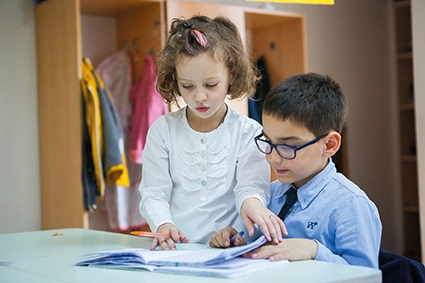Georgian Parliament Adopts Code of Child Rights
The Parliament of Georgia adopted a Draft Code on the Rights of the Child by 85 votes with the third reading on Friday, which reinforces the state system and ensures the welfare and protection of every child in the country.
The draft was developed by the Human Rights and Civil Integration Committee of Parliament with the technical support of UNICEF Georgia. Parliament started development of the Code in 2017 in cooperation with local and international NGOs, state agencies, the Public Defender, and legal and independent experts.
The Code will enter into force on June 1, 2020. Meanwhile, various state agencies have been assigned to develop the legal regulations, drafts and technical standards. By November 1, 2019 Parliament will have developed and endorsed an implementation action plan to specify regulation development dates and the responsibilities of various ministries and agencies.
Parliament’s Human Rights and Civil Integration Committee has been assigned the job of overseeing the enforcement of the plan. The novelty in the Code is that children under 18 will enjoy free legal aid, and, in addition, all state agencies have been imposed with the obligation to meet children with a friendly and adapted environment and render services via specialized public workers.
The Code was initiated by the ruling Georgian Dream party and reads that the protection and support system set out in the Code will facilitate development of a child's individuality, public interest and values, as well as focus on work as the only morally justifiable means of achieving material well-being, and on the family as a fundamental value in society. It also seeks to develop the desire for a healthy lifestyle in children.
The authors of the drafts said that the adoption of the Code creates a systemic vision of the state, the legal basis for the well-being of children. However, in addition to creating a substantive legal basis, it is necessary to have specific enforcement mechanisms that will ensure the full implementation of the Code.
Moreover, the Code envisages separation of the child from the family in an extreme case and only on the basis of a judge’s order.
The State also undertakes responsibility for ensuring that socially vulnerable families receive an allowance and that social workers and psychologists study the mental and social state of parents and assist them to be engaged in the educational programs that allow them to be employed and support their own families.
The State will also provide alternative care to those who need support after transition to adulthood and there will be a system for prevention of and response to child abuse and bullying via a hotline and special coordinator.
The Code further envisages strengthening Parliament’s oversight of child rights, including the creation of a special council focused on children’s welfare.
Expected results of the Code are:
• That, in the long run, poverty, crime, violence, drug / alcohol / addiction will be reduced.
• Strengthening of families and promotion of raising children within their familial environment.
• Mechanisms for social support, proper living conditions and development of the child will be strengthened.
• A child support system will be developed to promote full integration of children, including children with disabilities, into the community.
• A system of protection against violence, obscenity and other harmful content coming from the internet and mass media will be established.
• Provision of child welfare will be systematically carried out at the local government level.
UNICEF welcomed the adoption of the Code, saying it is a groundbreaking achievement for Georgia.
“The Code is an umbrella document, a special law which unites all main principles that are crucial for a child’s wellbeing. It will guide all state agencies, local governments, other administrative bodies, the common courts, public and private organizations and individuals when working with and making decisions about children,” UNICEF stated.
It also noted that the Code creates greater guarantees to promote and ensure the participation of children in the decision making on all matters that concern them.
“All the existing laws and policies will have to come into compliance with this document and relevant implementation mechanisms will have to be created and improved,” the statement of the organization reads.
By Thea Morrison
Image source: UNICEF











